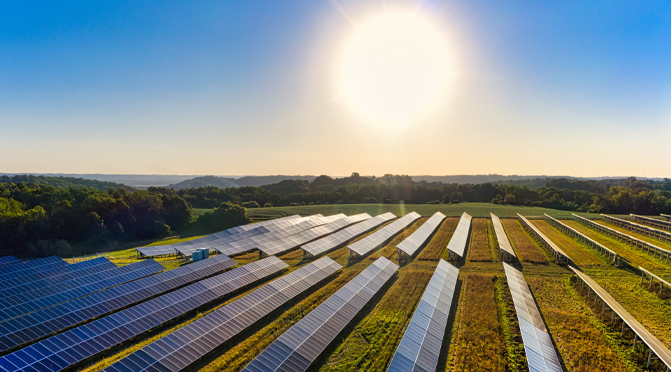|
|
(Harrisburg, Pa.) — Legislation to create a community solar program was introduced today as House Bill 1842 in the Pennsylvania House of Representatives sponsored by Representative Pete Schweyer (D-Lehigh) and Rob Matzie (D-Beaver), with a breadth of bipartisan cosponsors.
The legislation would enable community solar projects that are accessible to all Pennsylvanians, regardless of their ability to install solar panels on their own roofs. Current Pennsylvania law prohibits shared residences, apartment buildings or shaded roofs from utilizing solar energy – one of the fastest growing forms of energy nationally.
“This concept is something that most agree is beneficial. We know that solar energy reduces the load on the grid while lowering electric bills,” said Rep. Schweyer. “But many residents – who would like to enjoy the benefits of solar – can’t do it on an individual basis, for a myriad of reasons. So, the idea is to provide a mechanism for targeted solar projects in communities that want them. People subscribe, save money, and the grid benefits. What’s not to like?”
Similar programs exist in 22 other states, and the projects can be developed by private owners, municipalities and institutions. Once the offsite project is operational, participants can subscribe to a portion of the energy generated and receive credit on their electricity bill for the power produced – the same process as if the panels were installed on their own home. As it now stands, low to moderate income families are unable to enjoy the benefits of solar energy because of the large upfront investments of the projects and because they may not own their home.
“Solar energy is a critical part of a comprehensive energy portfolio, but current law makes community solar illegal in Pennsylvania and therefore inaccessible to a huge number of people who could benefit,” said Matthew Hargarten, Vice President of Campaigns for CCSA. “This legislation will finally legalize community solar and is good policyfor consumers who will see bill savings; landowners who will see development and investment on their property; and workers who will see good paying jobs in the state as these projects come to fruition.”
These projects, funded through private investment, will create more than 11,000 local jobs including electricians, installers, construction, marketing, and more.
Statewide labor unions have voiced their strong support for community solar programs, including the PA Building Trades in an op-ed by Rob Bair.
“In this state, we value hard work and hard workers. We can always do more to provide them with additional opportunities, but an opportunity we are leaving on the table in Pennsylvania is a measured and concise solar energy expansion,” wrote Bair. “The introduction of community solar to this state would create countless jobs across the state – jobs that pay family-sustaining wages for years to come.”
Consumers have seen major increases in their utility bills over the past year. Among seven of the largest utilities that serve default-rate energy service in the Commonwealth, all averaged a quarterly increase of over 15% and two (Citizens Electric & PPL) saw increases of over 60% in a nine month span. Solar energy is able to reduce costs to consumers by supplying extra energy to the grid during peak demand on hot days when prices are the highest.
Finally, solar energy is inarguably valuable as the state modernizes its energy portfolio to include more renewable sources – but community solar programs solve another problem faced by Pennsylvanians: what to do with multi generational farmland, brownfields, and reclaimed mining lands.
These projects can be located almost anywhere. For example, farmers could more aggressively benefit from the cost savings and extra income stream of solar without having to take farmland out of production. Some ground mounted solar arrays are now being developed as preserves for native plants and pollinators.
“Farming is a labor of love and the next generations don’t necessarily have that same love of sweaty labor. It is becoming less financially feasible without the secondary income,” wrote landowner Michele McBride Casale of Stroudsburg wrote to the Pocono Record. “Solar panels can provide that necessary income by being placed above crops to allow the land to have a dual-use: agriculture and solar. Without the secondary income of solar, many farms will be sold for developments and warehouses, which means more traffic, more pot holes, more stress on roads, schools, police and fire departments. Community solar can be the help farmers need to continue providing food for us and our animals, while helping keep the air clean to breathe and producing clean energy at the same time.”
Read more about the legislation here.
Information provided to TVL by:
Brit Crampsie





